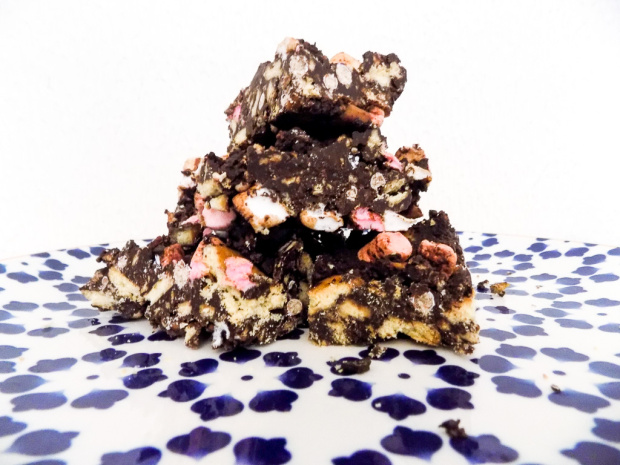
If you’ve been ill for any period of time, you know that it’s more difficult to do things you need to do or even enjoy. Usually, when you get better, your energy and motivation levels improve also.
Chronic illness makes that equation slightly more complex.
Even when the pain leaves, the motivation levels may stay as low as they were when you were ill. If you’ve noticed this phenomenon, you may wonder why, beyond the clearest answer – “depression”.
How chronic illness ruins motivation
Robert Malenka of Stanford University and his colleagues studied chronic pain in mice. They showed that persistent pain resulted in mice being less and less likely to work for food in comparison to their pain-free friends.
Long-term pain (in this case, a week for the mice), resulted in nerve-cell changes in the nucleus accumbens which is important for processing reward and reinforcement.
When the pain was relieved, the mice were still less willing to work for food even if they were hungry.
The researchers asked if they did not work for food because…
More tests showed that they could walk fine and still valued food. Their pain was relieved. They lacked motivation.
Although Dr. Malenka’s study was valuable, it may not be best to directly translate these findings to humans. What we can take from this is that long-term pain seems to reduce motivation even after the pain has left.
There seems to be a slight edge taken off life when you’re in pain because you grow to expect the pain to continue. More tasks appear futile because they were difficult or unable to be completed in the past.
Moreover, we must also be aware of the complex intertwining with depression, fatigue and emotional tiredness that comes with living with an illness for a long period of time. Quite literally, it can change you physically and mentally.
What can we do about it?
Now we know that chronic pain can influence motivation even when the pain isn’t there, we can start with the first tip:
There are days when pain isn’t as bad but we still don’t want to do anything. Now we know why.
To stop yourself from falling victim to the useless command of “just snap out of it!”, understand that it’s more important to be on your own team and to forgive yourself if things don’t always go to plan.
2. Start small…
…and stay small.
I’ve long been an advocate of making small, healthier changes that you can do every day. They are more sustainable, more enjoyable, easier to do and easier to fit into the day. Not everything needs to be a 100% effort – and they’re useless if you can rarely put in that effort.
For example:
The daily actions vary from person to person. Some people can manage 30 minutes of walking a day, other people find it difficult to walk to the kitchen sometimes. No need to feel ashamed or arrogant about whatever stage we’re at.
What does “stay small” mean?
It means, on pain-free days or simply days that you feel good, you may not want to take advantage of that and do everything you’ve hoped for. It feeds into the boom and bust cycle of pain management.
Pain ratings:
Day 1: 5/10 | Day 2: 6/10 | Day 3: 4/10 | Day 4: 1/10 NOW WE RUN A MARATHON WHILE COOKING FOR 100 PEOPLE
Day 5: 9/10 – We do nothing.
And repeat.
We want to have a reasonable amount of consistency in our days so that we can consistently feel rewarded for our efforts regardless of our pain levels. That is easier said than done but still possible to a degree.
If we feed into the boom and bust cycle, even those days where your body doesn’t feel like it’s on fire can result in us doing very little.
3. Take time to slow down
Some days, all the medication or tips in the world can’t really help us. But we can try our best to take some time to ourselves and slow down just a bit.
Whether that is through:
- Taking a few deep breaths
- Stroking our hands lightly
- Eating and drinking mindfully
- Hugging a teddy bear (or person… subject to availability, of course)
We can experiment with healthy ways to stop ourselves from getting lost in the self-hatred or anxiety that comes from a lack of motivation and depression.
Why bother?
Chronic pain often makes us ask ourselves – why bother? We can very easily build resentment towards our condition and ourselves. Who doesn’t want to have more control over their lives?
I won’t tell you that you should feel a certain way after reading this. I certainly won’t say that you should feel motivated. However, do take away that small, sustainable changes can be a healthy way to manage pain and our motivation levels.
To end, I quote Toni Bernhard…
May you make the best use of what is in your power and take the rest as it happens.
As always, thank you for reading!
Follow me on Facebook and Twitter!
Further reading:
12 Ways to Cope with Chronic Pain and Depression
Decreased motivation during chronic pain requires long-term depression in the nucleus accumbens
Study reveals brain mechanism behind chronic pain’s sapping of motivation
Advertisements If you liked this post, share it with others!




